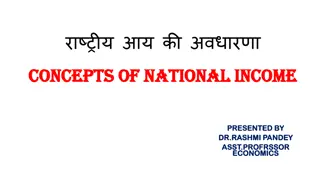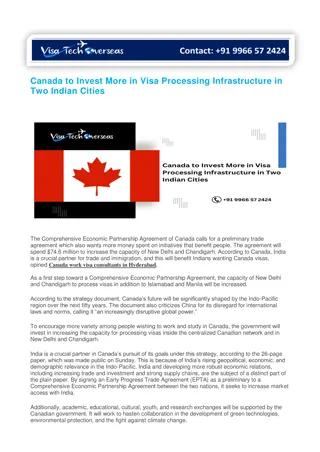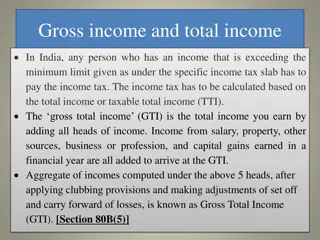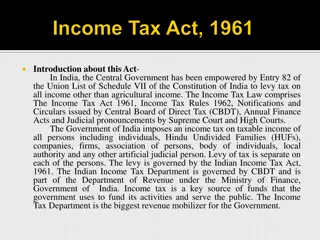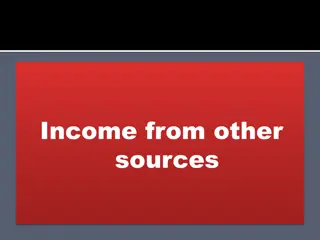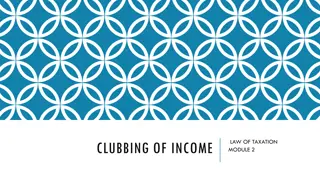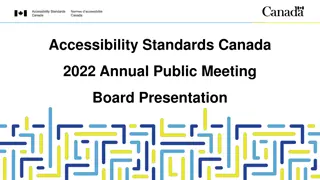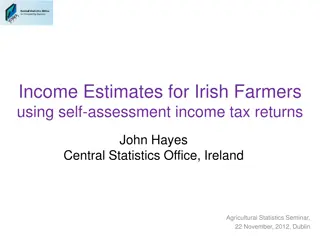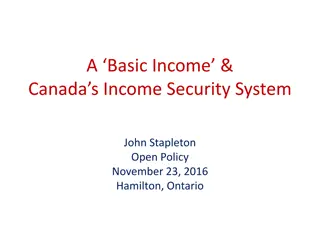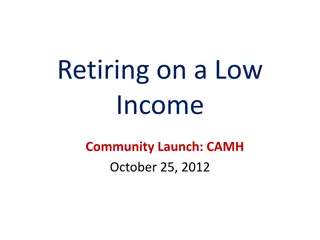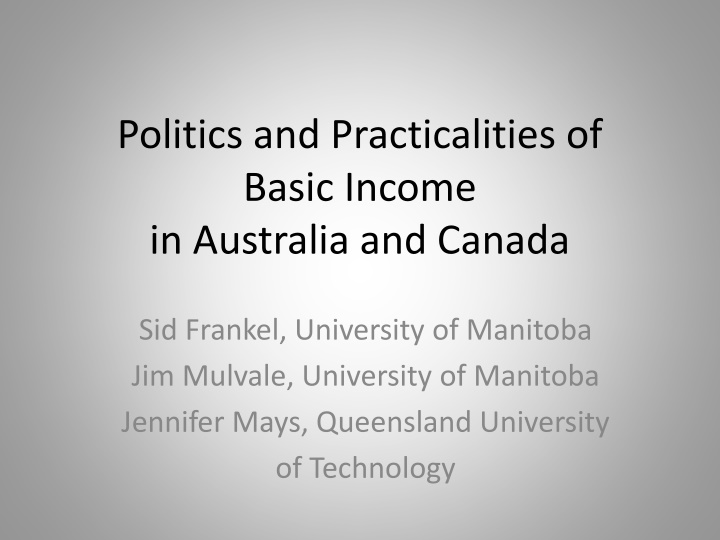
Politics and Basic Income in Australia and Canada
Explore the political landscape and practicalities of implementing basic income in Australia and Canada, delving into issues of poverty, income inequality, and the growing support for a basic income system amidst shifting political perceptions. Learn how the welfare state, neoliberal policies, and economic factors impact the discussion around basic income in these countries.
Download Presentation

Please find below an Image/Link to download the presentation.
The content on the website is provided AS IS for your information and personal use only. It may not be sold, licensed, or shared on other websites without obtaining consent from the author. If you encounter any issues during the download, it is possible that the publisher has removed the file from their server.
You are allowed to download the files provided on this website for personal or commercial use, subject to the condition that they are used lawfully. All files are the property of their respective owners.
The content on the website is provided AS IS for your information and personal use only. It may not be sold, licensed, or shared on other websites without obtaining consent from the author.
E N D
Presentation Transcript
Politics and Practicalities of Basic Income in Australia and Canada Sid Frankel, University of Manitoba Jim Mulvale, University of Manitoba Jennifer Mays, Queensland University of Technology
Political context in Australia Modern liberal welfare state: residualist, non-contributory and needs-based entitlement. Provision is via taxation revenue Endurance of neo-liberal policies erosion of collective benefits and sense of entitlement Australia s poverty rate has markedly risen above the OECD average (11.3%) with 14.4 per cent of Australians living in (relative) poverty (ACOSS 38; Alvaredo et al. 5) 2.99 million people (13.3% of the total Australian population of 24 million) experiencing significant poverty and extreme financial hardship (Bowman et al. 2017) Approximately 57.3% people who live in poverty, also rely on a pension or allowance as the predominant source of income Income support system of benefits paid by governments are inadequate (payment rate is under the poverty line) (Whiteford, 2011) Increased working poor due to erosion of wages over time (Bowman et al. 2017)
Political context in Australia Yet, Australia s overall welfare expenditure remains persistently well below the OECD average Results in higher levels of economic insecurity, precarityand increased income inequality over time associated with labour market restructuring, rise of automation in conjunction with decline in full-time jobs as a proportion of the labour market, increase in casual employment, and rise in long-term unemployment (Whiteford55) System of income support targeting and greater conditionality in Australia is exacerbating income inequalities and economic insecurity Crisis tendencies: reliance on free-market solutions led to shrinking public service and welfare sector; funding directed to private sector (consultancies, outsourcing Centrelinkcall centres, health and education) Reinvigorated calls for a basic income proposal in Australia given the crisis tendencies
Political Landscape is Shifting While the current liberal national government is seeking to embed free-market and austerity solutions In contrast the Australian public perception of neoliberal policies is changing Targeted approaches seen as archaic Levels of insecure employment; low, stagnating and declining wages and greater economic insecurity Higher levels of poverty and inequality-people are doing it tough People on Newstart (unemployment) Allowance are left with $17 for the fortnight once bills are paid Public would rather pay higher taxes for quality essential public services, but corporations and high income earners have to pay their fair share (Hetherington, 2016) People want a basic income
Acts of resistance and proposing alternative solutions can bring about change Rethinking traditional welfare responses to poverty and economic security in Australia and internationally Role of basic income in improving welfare state conditions for effective social work practice through promoting autonomy and cultural justice
Politics in Canada Building Political Support for BI Mobilizing Key Constituencies: social policy advocacy organizations Caledon Institute Canadian Centre for Policy Alternatives Campaign 2000 Canadian Association for Social Workers LEAP Manifesto pivotal role of BICN and its provincial and local affiliates since 2008
Politics in Canada Building Political Support (contd) Indigenous voices and UBI Legitimate wariness among some Indigenous leaders about welfare as an instrument of colonialism and oppression Ovide Mercredi s address to the 2011 NABIG Congress in New York Annuity payments in Numbered treaties as a potential building block Dividend payments under modern land claims agreements e.g. Inuvialuit Regional Corporation
Politics in Canada Building Political Support (contd) Mobilizing Key Constituencies (cont d): Support from the labour movement in an age of precarious employment? Interest in UBI in the Information Technology sector The environmental movement and basic income
Political Parties and Support for BI Federal level: Liberal Party of Canada New Democratic Party Green Party of Canada Provincial level: Ontario (Liberal) British Columbia (NDP with Green support) Debate and recent developments in Qu bec

